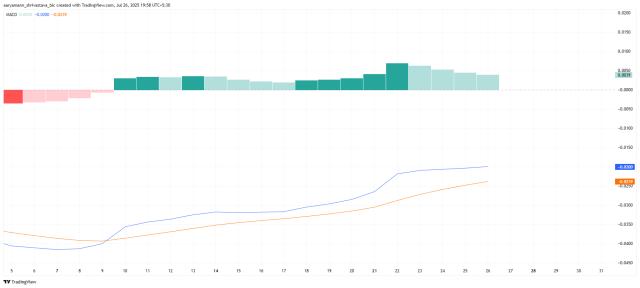In July 2025, the cryptocurrency market welcomed two major news: on one side, SpaceX conducted a Bitcoin transfer worth $153 million after three years, demonstrating its continued long-term strategy of holding nearly 7,000 BTC; on the other side, PNC Bank announced a partnership with Coinbase to launch cryptocurrency trading services, marking traditional financial institutions' accelerated embrace of digital assets. These developments collectively highlight the increasingly important role of cryptocurrencies in corporate asset allocation and mainstream financial systems.
SpaceX Transfers Bitcoin Worth $153 Million After Years of Silence
SpaceX reignited market speculation about its cryptocurrency strategy by transferring 1,308 Bitcoins (worth approximately $153 million) to a new SegWit address. This transaction marks the company's first on-chain activity since June 2022, when it transferred 3,505 BTC to Coinbase.
Arkham Intelligence's blockchain analysts tracked this fund movement from a dormant wallet since mid-2022. The single consolidated transfer was not dispersed or routed through intermediaries, suggesting possible internal fund reorganization rather than a market sale. SpaceX currently holds 6,977 BTC, valued at approximately $815 million at current prices.
This move follows Tesla's sale of 75% of its Bitcoin holdings in 2022, though Elon Musk's companies still maintain substantial cryptocurrency reserves. Market observers interpret these corporate balance sheets as long-term bets on "digital gold," despite periodic portfolio adjustments.
PNC Bank Partners with Coinbase to Launch Cryptocurrency Trading Services
The eighth-largest commercial bank in the United States, PNC, announced a strategic partnership with Coinbase to provide cryptocurrency trading services to its customers. This collaboration leverages Coinbase's "Crypto as a Service" (CaaS) platform, enabling PNC's millions of users to trade digital assets directly within their bank accounts. This move demonstrates the accelerating trend of traditional financial institutions integrating cryptocurrency services.
The CaaS platform provides PNC with a secure, compliant infrastructure for cryptocurrency trading, custody, and settlement. PNC Chairman and CEO William S. Demchak emphasized that this move is to meet customer demand for digital asset solutions. Coinbase's Head of Institutional Business, Brett Tejpaul, noted that the platform can help banks quickly deploy compliant crypto products.
Coinbase Announces Listing of 3 Altcoins, Market Responds Enthusiastically
Coinbase announced the listing of three new Altcoins—BankrCoin (BNKR), Jito Staked SOL (JITOSOL), and Metaplex (MPLX), which immediately triggered market reactions. The announcement was made on X (formerly Twitter), including contract addresses for each token, but warned that trading would only begin after ensuring market support and technical readiness.
The market quickly responded, with BNKR surging from $0.00037 to $0.00052, a rise of approximately 40.54%, before partially retreating. Coinbase warned users not to deposit funds prematurely, emphasizing potential permanent loss before official trading begins. This move demonstrates Coinbase's continued expansion in niche crypto assets, leveraging its influence to drive liquidity and investor interest.
South Korean Financial Regulator Restricts Cryptocurrency Exposure in ETFs
The South Korean Financial Supervisory Service has quietly tightened regulations on cryptocurrency-related investments. Asset management companies received verbal guidance to limit holdings of stocks from exchanges like Coinbase and MicroStrategy in exchange-traded funds (ETFs), reinforcing restrictions technically in place since 2017.
This action creates regulatory friction amid a global market warming to digital assets. While the US advances spot Bitcoin ETFs and Hong Kong approves crypto funds, Seoul maintains a cautious stance. Current regulations still prohibit financial institutions from holding, trading, or accepting virtual assets as collateral.
According to anti-money laundering provisions from South Korea's 2017 trading frenzy, corporate cryptocurrency transactions remain banned. Regulators view institutional exposure as particularly dangerous, creating a paradoxical situation where retail investors face fewer restrictions than professional fund managers.






